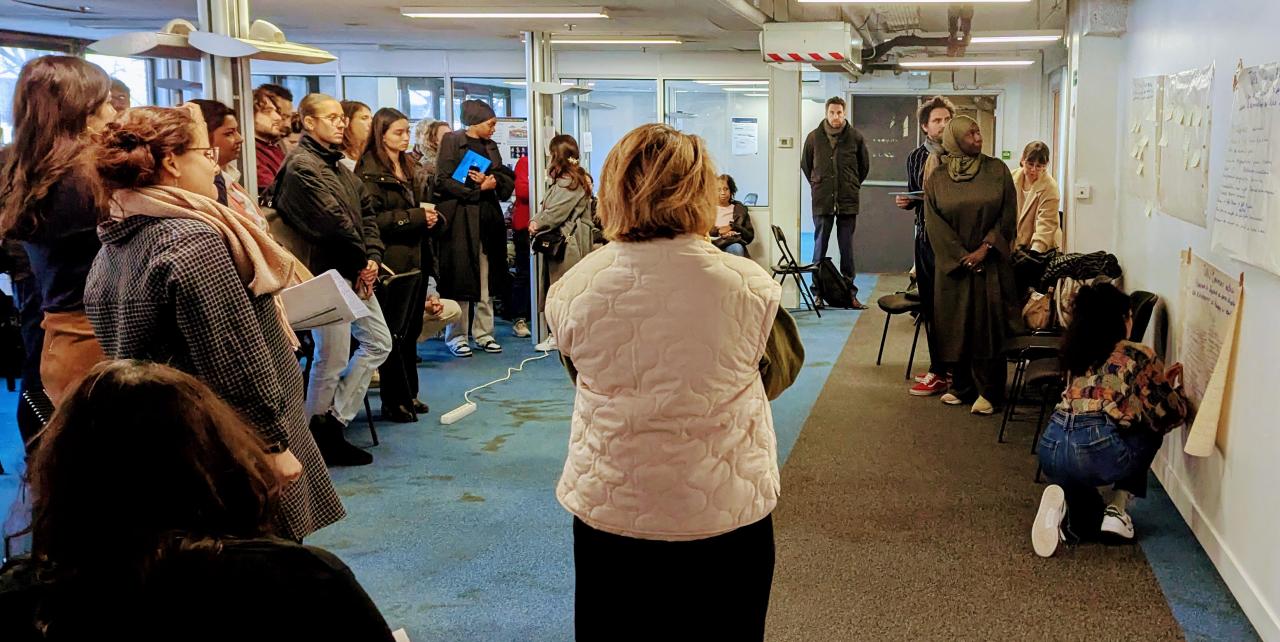Home to more than 1.6 million inhabitants, this département dedicates each ULG session to a specific human rights issue affecting migrants — this time focusing on early childhood. The group of participants, which includes politicians and practitioners from public authorities and civil society, has a different profile with each session to allow for in-depth, theme-specific analysis and action planning. The French Association of Welcoming Cities and Territories (ANVITA) plays a key role in supporting this process, helping design the workshops and facilitating the overall planning as a kind of secretariat.
This systematic, issue-driven approach highlights how URBACT projects and their Local Groups can innovate governance structures. In a territory as large and complex as Seine-Saint-Denis — which encompasses 39 municipalities — convening all relevant stakeholders to develop joint action is a significant challenge. WELDI has provided the impetus for creating this platform to regularly bring together these actors to reflect on human rights and migration. The ongoing strength of the ULG model is evidenced by the more than 50 participants from 30 institutions from outside the department who attended this 8th meeting.
Neglecting the needs of children is among the most serious violations of human rights, with long-term consequences for society. While international frameworks acknowledge children’s specific vulnerabilities — such as through the UN Sustainable Development Goals and the EU Pillar of Social Rights — in practice, access to childcare remains dramatically inadequate across Europe.
In Seine-Saint-Denis, the well-being of children under six is a political priority. At the start of the meeting, Vice-President Nadia Azoug and Deputy Director for Family and Children Amos Waintrater reaffirmed the département’s commitment to innovation in early childhood. A clear example of this commitment is the “Cabins of the First 1000 Days,” created under the new national policy for children under three. The “cabins” in Seine-Saint-Denis serve as welcoming, low-threshold spaces that promote parenting and early development through a variety of educational and recreational activities for children and accessible information for parents.
This dedication is also reflected in the département’s strategic roadmap for child protection, which was co-developed with over 200 professionals and more than 60 children, youth, and parents. The roadmap includes a broad range of measures to strengthen parenting, enhance protection, and expand the quality and availability of childcare.
However, like all WELDI partners, Seine-Saint-Denis faces a severe childcare shortage. Only one in three children under the age of three has access to childcare, which is just half the national average. This shortfall is partly due to the area’s unique demographic profile — it has the youngest population and highest birth rate in metropolitan France. The childcare gap not only hinders the integration of young newcomers but also presents a major barrier to autonomy for refugee and migrant parents — typically women.
One of the four workshops at the ULG meeting addressed this challenge, bringing together around 20 professionals working in childcare and related services. The discussions underscored the need for more flexible care solutions — such as home-based services — that align with today’s 24/7 society. However, the institutional and regulatory framework has yet to catch up, leaving many informal care providers — often migrant women — in precarious, unrecognized, or unregulated positions.
To address this, it is essential to make childcare professions more attractive, ensure proper training and certification, and formally recognize the existing skills and experience of migrant caregivers.
The other workshops echoed key strategic priorities of Seine-Saint-Denis and explored additional themes: promoting the use of children’s maternal languages, supporting migrant women, and enhancing migrant participation in services that support their children’s development.
The results of the workshop will be discussed with stakeholders through a basecamp platform and lead to actions to be included in the Seine-Saint-Denis Integrated Action Plan. One of the actions will be a strategy for parenting support that will include an intercultural dimension.


